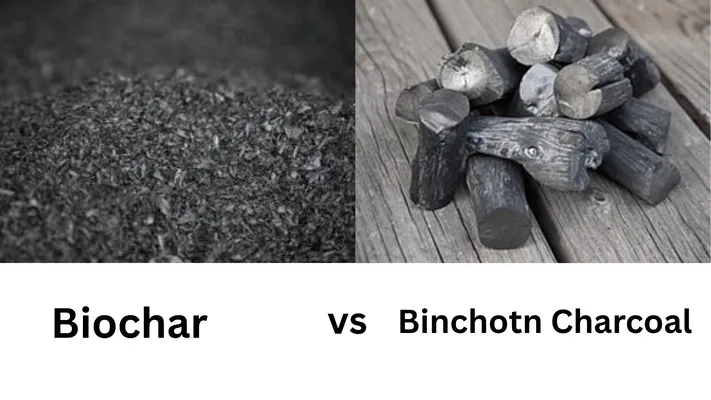FAQs
Is biochar or binchotan charcoal better for plants?
For plant care, biochar is generally the better choice. It’s specifically engineered to improve soil health by enhancing water retention, nutrient availability, and microbial activity, leading to better plant growth.
What is the main difference between biochar and binchotan charcoal?
Biochar is produced through a specific process called pyrolysis to create a soil amendment that improves soil structure and nutrient retention. Binchotan charcoal, while useful for drainage and odor control, is not specifically engineered for comprehensive soil improvement.
Can I use binchotan charcoal for my plants?
Yes, you can use binchotan charcoal (also known as horticultural charcoal) for plants, primarily to improve drainage and reduce the risk of root rot. However, it won’t offer the same soil-enhancing benefits as biochar.
What are the main benefits of using biochar?
Biochar improves soil structure, helps the soil retain water and nutrients, and supports beneficial microbial activity. It is also a carbon-negative material, making it a sustainable choice for gardeners
Is charcoal good for the garden?
Regular charcoal can be used in the garden to improve drainage and absorb excess moisture, but it doesn’t offer the same comprehensive soil-improving benefits as biochar.
What are the main benefits of using biochar in the garden?
Biochar helps improve soil structure, increases water and nutrient retention, and supports beneficial microbes, leading to healthier plants and a more sustainable garden.
